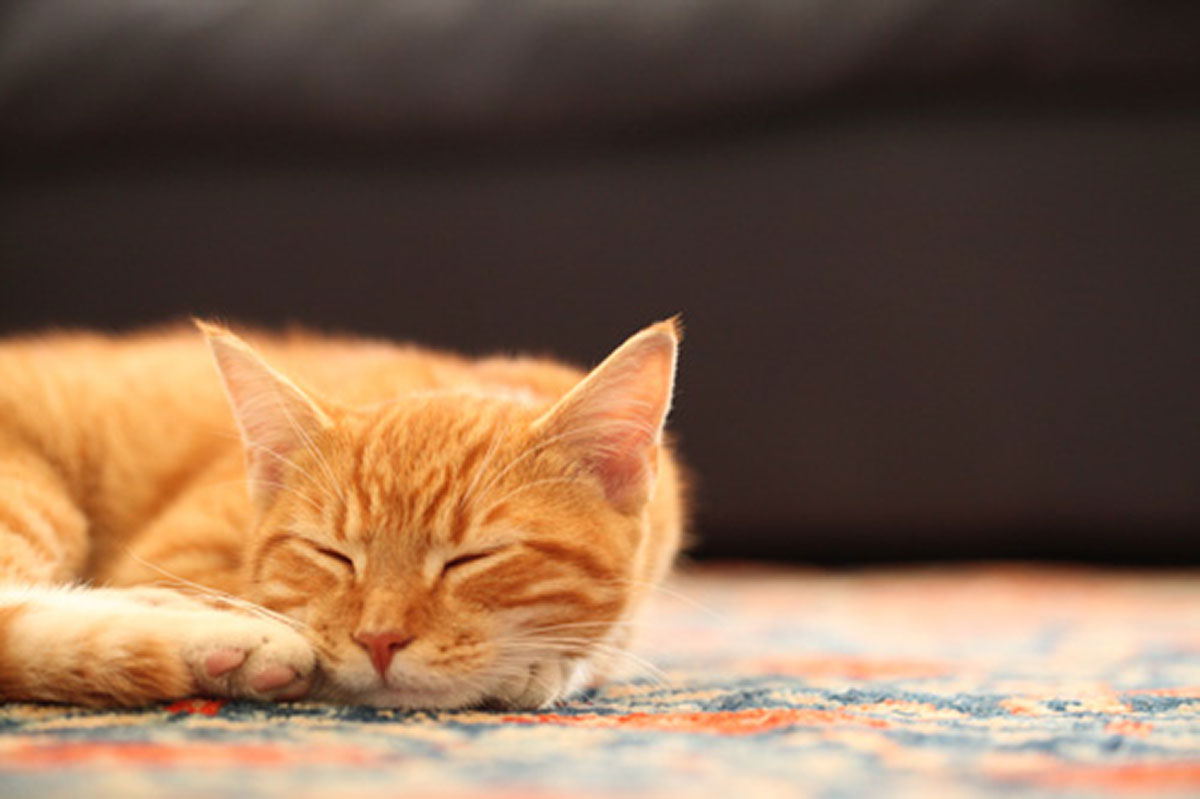Hello Catvocates! I am writing to you from my office this morning. One of my favorite clients and her beautiful, giant Maine Coon named Mongo were in for their annual appointment. Mongo’s mom is a busy lady. Between work and family obligations, she is not spending as much time with Mongo as she likes to.
“Mongo means the world to me,” she told me (as if I didn’t already know.). “How can I tell if he’s bored?”

Wow. What a great question. How can you tell if your cat is bored? The answer is a bit complicated. Boredom is a human emotion. In the world of cat behavior, we tend to think of this emotion as stress. Here are three ways to tell if your cat might be stressed and what you can do about it.
1. Sleeping all of the time. Your cat may adapt to an under-stimulating environment by sleeping life away. It is normal for cats to sleep a lot - up to 16 hours a day. But, it is normal for this sleep to be part of the rest, hunt, eat, groom, sleep cycle. If your cat is sleeping more than is normal, he/she may need more play/hunting stimulation during the day.
2. Overeating is a common outlet to deal with stress, for cats AND people. Providing an “all day buffet” in the form of a giant bowl of food is understandable. But, it is not doing your cat any favors. Appropriate play/hunting stimulation is a much healthier outlet for these emotions. In fact, cats do best with multiple small meals of controlled portions throughout the 24 hour period.
3. Mischief. Cats scratch for a variety of reasons. Scratching is NORMAL for cats. This normal behavior becomes undesirable when it is taken out on our furniture and drapes. Providing your cat with a scratching post that it wants, in the location that it wants, can minimize this problem. Most cats prefer an upright scratching post, tall enough so that they can stretch out completely and stable enough that it won’t fall over and scare or hurt them. Rope and carpet are the preferred coverings. When cats scratch, they are also marking. Put a variety of scratching posts in the areas where you and your cats spend the most time and see which your cat prefers. In addition to normal scratching behavior, cats may be destructive when they live in an understimulating environment. Active play, toys and hunting simulation will enrich your cat’s life and provide a natural, desirable outlet for this often misdirected energy.
Creating a home environment with a few thoughtful additions can keep your cat happy and healthy, even when you can’t be there. And a happy, healthy cat makes a happy pet parent!
For more information on cat wellness, visit Dr. Bales at her blog at www.TheCatvocate.com and on Facebook at The Catvocate.
